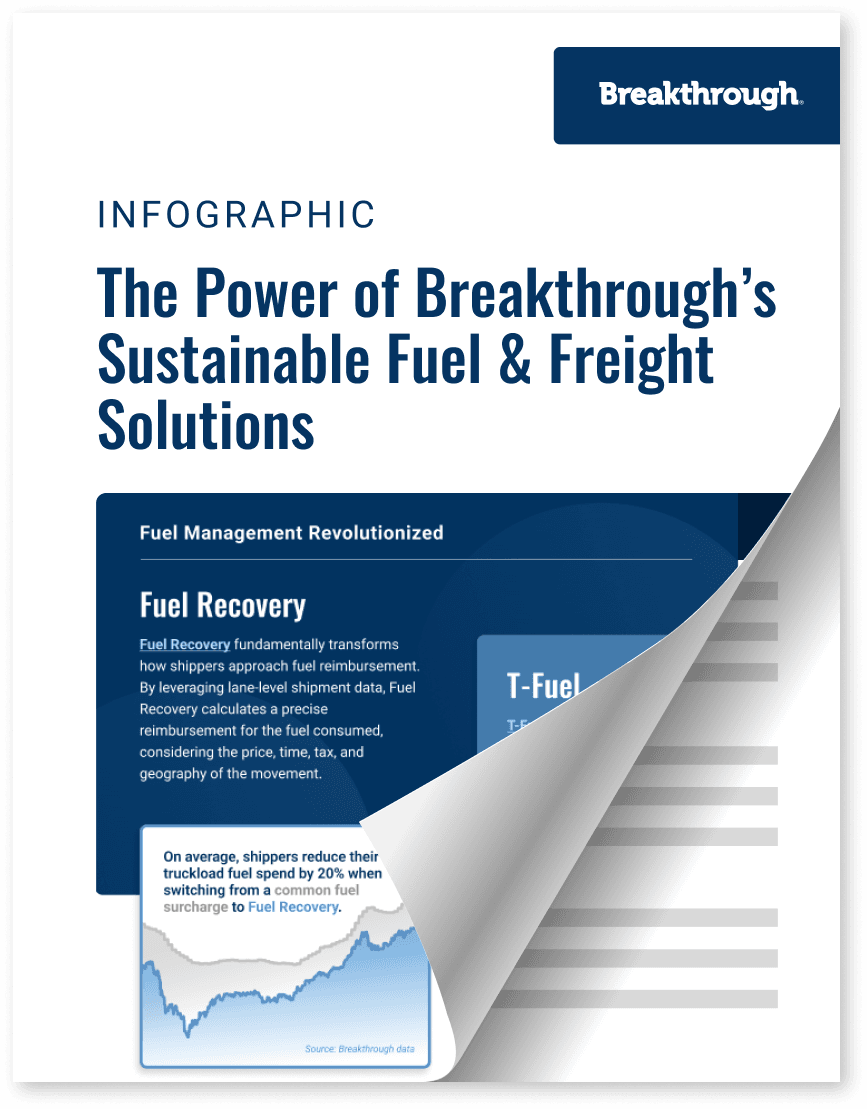The Power of Breakthrough's Sustainable Fuel and Freight Solutions

Freight
3 min read
July 17, 2024
Market Events
4 min read
July 16, 2024
Market Events
3 min read
July 8, 2024

4 min read
November 22, 2023

Share:
Convincing upper management, IT, and Finance to invest in new technologies and programs can be an uphill battle, especially in a soft freight market. While the cost savings and environmental benefits of optimizing transportation fuel are clear to those directly involved, explaining the nuances to executives focused on quarterly results requires data, a record of success, and a compelling vision. If you want to win the resources and budget to implement Fuel Recovery, consider these change management strategies.
Breakthrough's Fuel Recovery solution has a proven record of success that can address concerns about change management, and ensure maximum buy-in from stakeholders. With the right approach, you can transform skepticism into support and unleash the full potential of fuel management at your company.
When pitching Fuel Recovery to various stakeholders, it is imperative to effectively communicate the benefits the program will provide your organization. Clearly demonstrating the business case, sharing multiple success stories with positive business outcomes, and emphasizing the data from the Fuel Recovery program brings transparency to freight negotiations and fuel management discussions is vital in persuading leaders that the program is right for your transportation network.
To develop your change management strategy, consider these key points:
By effectively communicating these points, you can facilitate meaningful conversations about adopting Fuel Recovery and showcase its long-term value for your organization.
Here are some resources to support your conversations:
However, it is not just about the conversations; it is also about demonstrating long-term value. There are multiple levers in the Fuel Recovery program that drive continuous value, whether it is fuel efficiency improvements to get closer to the reality of your carriers, a zero-base strategy, or transitioning the fuel source on a lane to an alternative energy.
Fuel Recovery also offers comprehensive reporting and analytics to track fuel consumption, cost savings, and carbon emissions. This allows you to continuously monitor the impact of Fuel Recovery on your operations and demonstrate its value to key stakeholders.
By effectively communicating the immediate and lasting benefits of Fuel Recovery, you can develop a robust change management strategy and ultimately gain support from stakeholders. In these conversations, be prepared to address questions about cost, implementation, and impact on carrier relationships.
With the right approach and resources, you can win over stakeholders and drive continuous improvements in your transportation network. Trust in Breakthrough's proven track record and unlock the full potential of Fuel Recovery for your business.

3 min read
July 17, 2024
Maximize transportation efficiency with cohesive fuel and freight strategies. Discover the power of enhanced visibility, cost-effectiveness, and sustainability.
Read more
4 min read
July 16, 2024
Discover how the recent elections in Mexico and the EU are expected to influence energy policies, fuel prices, and dynamics in the transportation sector.
Read more
3 min read
July 8, 2024
Understand the state-specific changes in diesel tax rates and explore strategic solutions for shippers to accurately calculate fuel reimbursements to carriers.
Read more